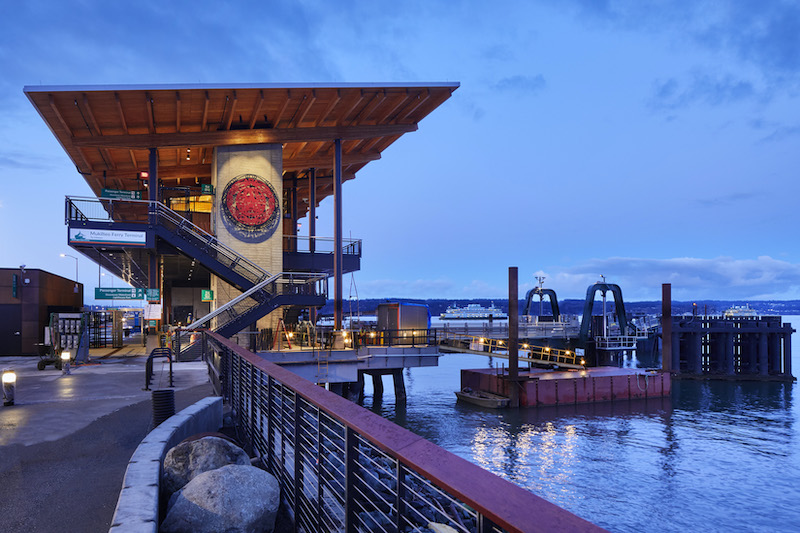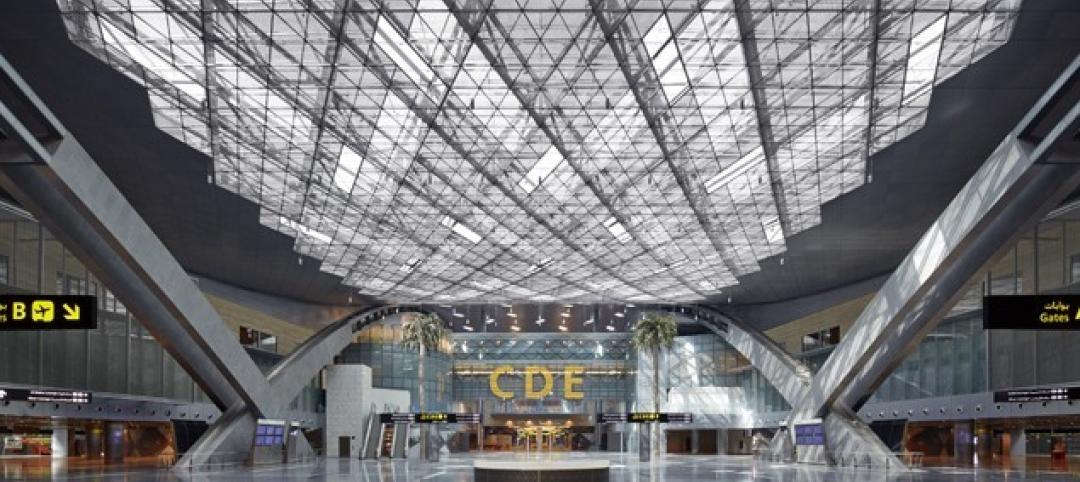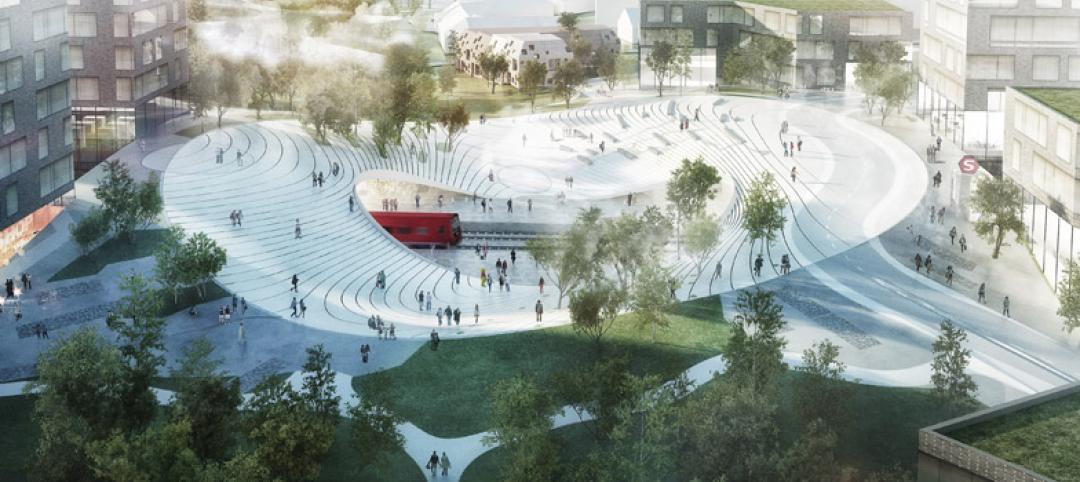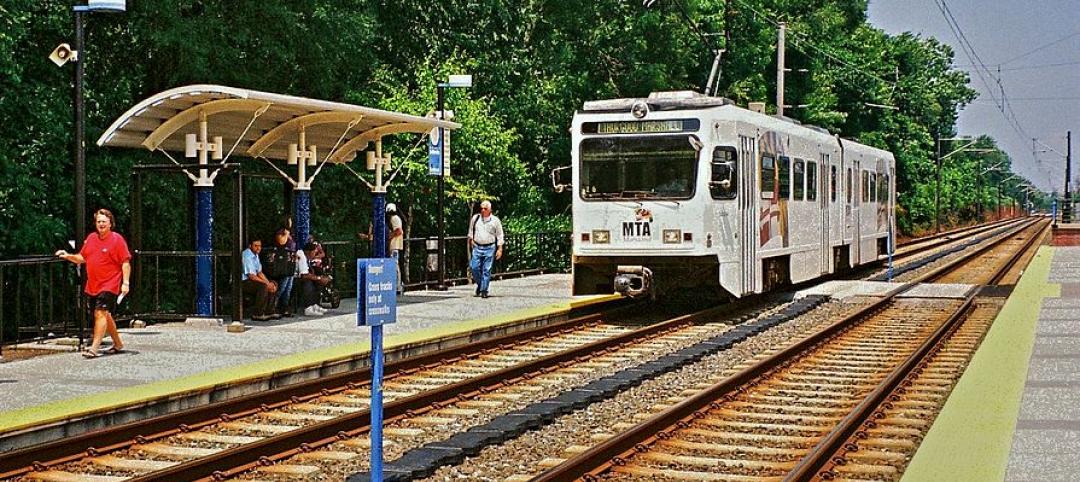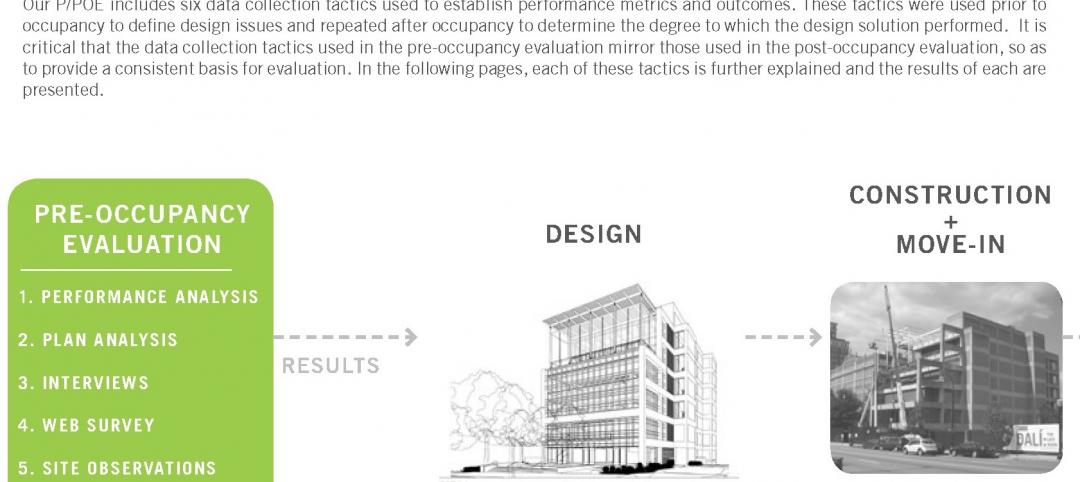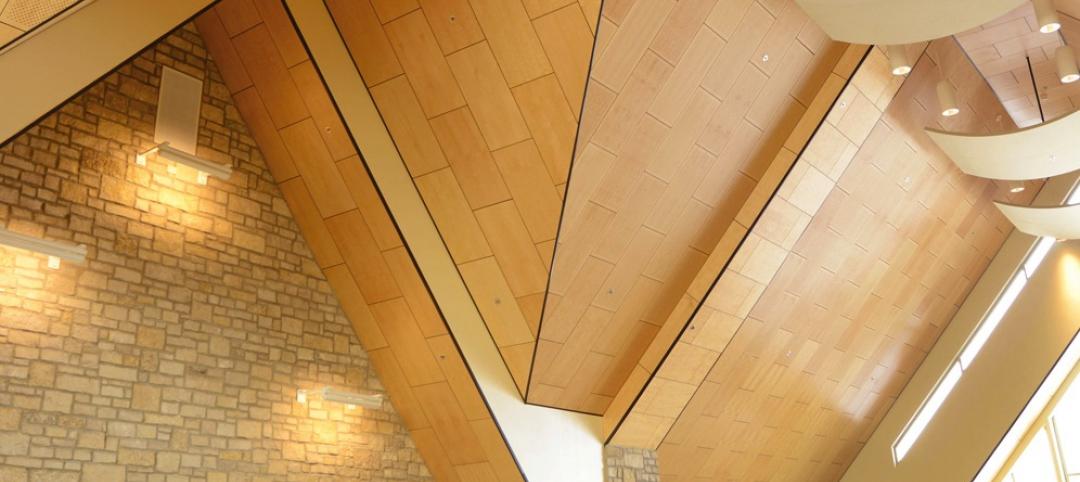Built on a repurposed brownfield site to replace the existing Mukilteo ferry terminal, the new Mukilteo Multimodal Ferry Terminal provides more space for vehicle holding and separates pedestrian and vehicle boarding with an overhead walkway for safer, more efficient loading, especially for people with disabilities. The new facility includes a 5,865-sf terminal, a 4,193-sf maintenance building, and a 828-sf toll plaza.
The two-story building was designed in partnership with KPFF Consulting Engineers with input from local Coast Salish tribes. The building’s longhouse form streamlines circulation and manages large patron flows with intuitive wayfinding. Vertical transportation cores with elevators and stairs at each end of the structure lead to a linear promenade at the upper level, from which entries to the ticketing and waiting area are plainly visible.
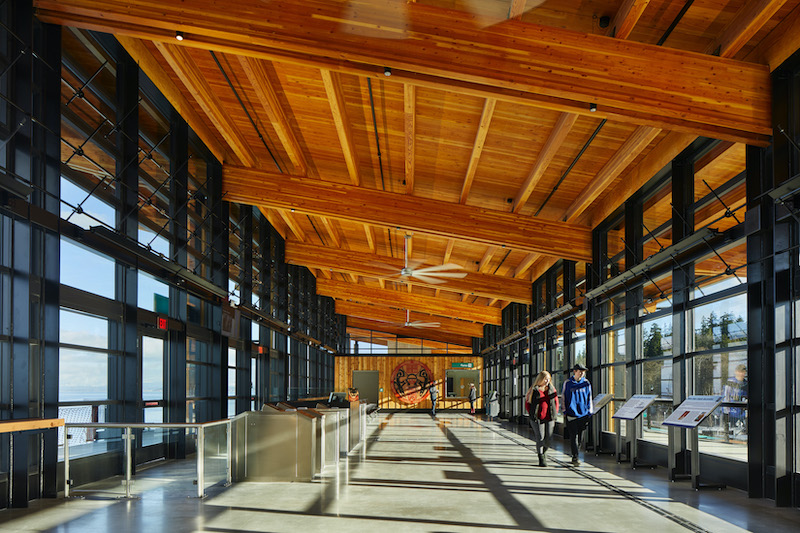
A daylight-filled waiting room provides views to land and sea and helps to orient ferry riders. Tribal cultural motifs created by local Native American artists are displayed throughout the building to create a welcoming atmosphere. A new waterfront promenade connects a path from downtown Mukilteo through the terminal and onto the beach, creating an elevated pathway for public use.
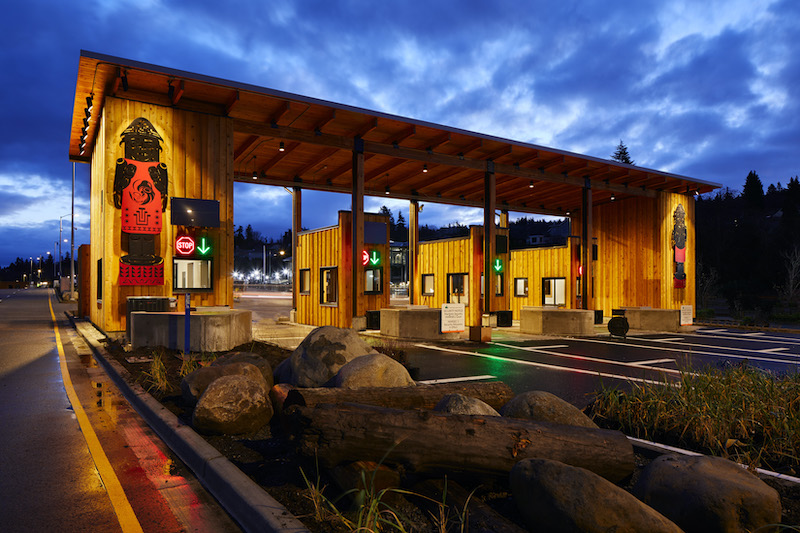
The team approached the project with strong sustainability ambitions. Removing the pier eliminated approximately 10% of the Puget Sound’s remaining toxic creosote piles. The longhouse-style shed roof provides space for a full array of photovoltaic panels, allowing the building to return energy to the grid. The roof canopy is made from cross-laminated timber while heating and cooling the concrete-slab main floor with electric heat pumps provides interior comfort year round. Additionally, a rack and pinion window system automatically opens and closes in response to changing conditions, optimizing airflow and comfort.
The new Mukilteo Multimodal Ferry Terminal officially opened on Dec. 29.
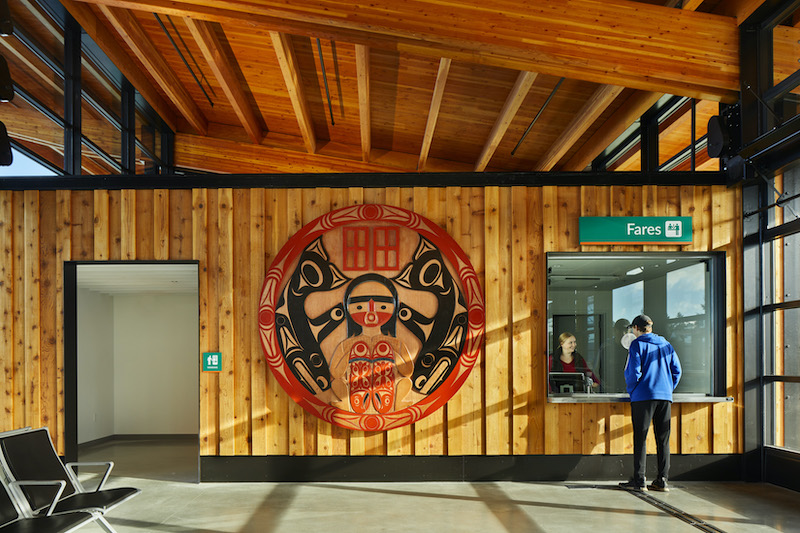
Related Stories
| Dec 28, 2014
The future of airport terminal design: destination status, five-star amenities, stress-free travel
Taking a cue from the hospitality industry, airport executives are seeking to make their facilities feel more like destinations, writes HOK's Richard Gammon.
| Nov 18, 2014
New tool helps developers, contractors identify geographic risk for construction
The new interactive tool from Aon Risk Solutions provides real-time updates pertaining to the risk climate of municipalities across the U.S.
| Oct 16, 2014
Henning Larsen Architects to design train station for planned Danish town
Danish firm Henning Larsen Architects won Frederikssung municipality’s architecture competition for a regional train station in the planned city of Vinge—Denmark’s largest urban development.
| Oct 16, 2014
Perkins+Will white paper examines alternatives to flame retardant building materials
The white paper includes a list of 193 flame retardants, including 29 discovered in building and household products, 50 found in the indoor environment, and 33 in human blood, milk, and tissues.
| Oct 15, 2014
Harvard launches ‘design-centric’ center for green buildings and cities
The impetus behind Harvard's Center for Green Buildings and Cities is what the design school’s dean, Mohsen Mostafavi, describes as a “rapidly urbanizing global economy,” in which cities are building new structures “on a massive scale.”
| Oct 12, 2014
AIA 2030 commitment: Five years on, are we any closer to net-zero?
This year marks the fifth anniversary of the American Institute of Architects’ effort to have architecture firms voluntarily pledge net-zero energy design for all their buildings by 2030.
| Oct 3, 2014
New survey tracks Americans’ attitudes towards transit use
A record 10.7 billion rides were taken on public transit in the United States last year. And a national survey of Americans finds that the speed, reliability, and cost, more than any other factors, determine people’s willingness and frequency of use.
| Sep 24, 2014
Architecture billings see continued strength, led by institutional sector
On the heels of recording its strongest pace of growth since 2007, there continues to be an increasing level of demand for design services signaled in the latest Architecture Billings Index.
| Sep 22, 2014
4 keys to effective post-occupancy evaluations
Perkins+Will's Janice Barnes covers the four steps that designers should take to create POEs that provide design direction and measure design effectiveness.
| Sep 22, 2014
Sound selections: 12 great choices for ceilings and acoustical walls
From metal mesh panels to concealed-suspension ceilings, here's our roundup of the latest acoustical ceiling and wall products.


